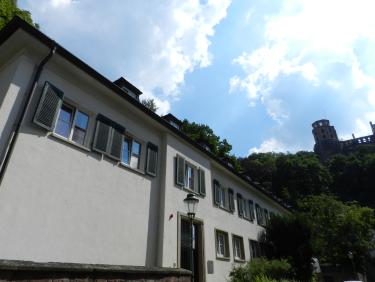
Ecumenical Institute

The Institute
The Ecumenical Institute was founded in 1946 by Edmund Schlink as the first ecumenical institute at a German university. Its research and teaching is devoted to the confessional profile and interconfessional relations of Christian churches and communities. In particular, it deals with basic questions of ecumenical theology on the basis of the various ecumenical dialogues of the churches.

Research
The research of the Ecumenical Institute focuses on the dialogue process in the ecumenical movement. Based on this, the Institute dedicates its research to ecumenical-theological questions. At the Institute, doctoral students and post-doctoral researchers from different denominations and cultures work on ecumenical and systematic-theological research topics and at the same time engage in ecumenical exchange.
Studies
The Ecumenical Institute's courses broaden Protestant systematic theology to include a perspective on different confessional profiles and the interconfessional relations of Christian churches and communities. In addition, the Institute repeatedly offers introductory courses in confessional studies and ecumenical theology.

Ecumenical Student Hall
The Oecumenicum consists of the Ecumenical Institute and the Ecumenical Student Residence and is an institution of the University of Heidelberg. It emerged from the Ecumenical Movement and is connected to it. In the Ecumenical Residence, German and foreign students from different fields of study, denominations, cultures and religions live together as a living community in diversity.

The Ecumenical Forum
Since its founding by Prof. Christoph Schwöbel in 2000, the Heidelberg Ecumenical Forum has offered the opportunity to discuss questions of Christian ecumenism with renowned scholars of different denominations and nationalities. The focus is on interdenominational and international dialogue.






